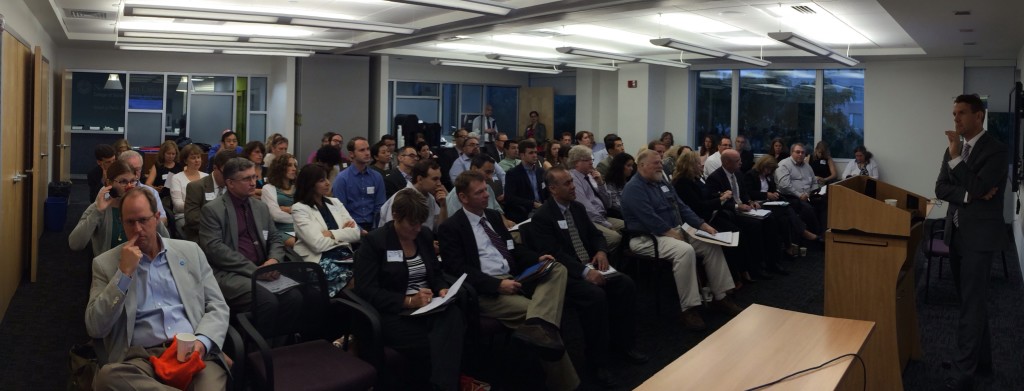
Massachusetts is attempting to lead the way on a performance-based system for selecting transportation projects.

Last year, The Commonwealth of Massachusetts passed a landmark bill to fund urgently needed statewide transportation investments over the coming years. But how will the state ensure that those dollars go where they’re needed most and can have the greatest impact? Advocates, state officials and other stakeholders in Massachusetts are in the midst of figuring that out.
To support and encourage them in pioneering a more inclusive, sophisticated approach to picking projects, we partnered with Transportation for Massachusetts this month on a conference in Boston called “Measuring Up: Getting More Bang for the Buck in Transportation Project Selection.” More on the event in a moment, but first a bit more context.
Why institute a process for picking better transportation projects in the first place? With public confidence in the process at alarmingly low levels, it’s more important than ever to quantify the public benefits and let voters know what their money is going to buy — especially when attempts are being made to raise new money for transportation to fill the gap.
Massachusetts’ 2013 funding bill established a new council to develop criteria for selecting projects, with the purpose of ensuring that new state funding will go to the most deserving projects across the commonwealth, not the ones that have simply been in the pipeline the longest.
That panel, the Massachusetts Project Selection Advisory Council (PSAC), has been hard at work gathering public input for their report of recommendations to the legislature. The Measuring Up event brought together members of the PSAC, transportation planners, local leaders and advocates to discuss criteria for evaluating the priorities the PSAC has identified: improving safety, lowering congestion, and helping connect workers to their jobs. Their report of recommendations is due by December 31st.
The keynote speaker, Massachusetts’s Secretary of Transportation, Richard Davey, noted his department had set a goal — known as Mode Shift — to increase walking, transit and biking trips by one-third by 2030. Realizing that goal “will require a strategic approach to project selection,” said Davey. “We just can’t do what we’ve always done.”
“We are honored to convene a group that will tackle this challenge and help balance regional priorities with transportation, environmental, economic, and social concerns,” said Kristina Egan, director of Transportation for Massachusetts. “With limited resources but knowing that transportation investments must last for generations, we have to make smart choices.”
Transportation for America is proud to support this kind of work at the state level that will improve accountability for our transportation dollars and help drive and fund transportation and infrastructure projects based on performance and data.
If you would like to know more about what PSAC has accomplished since they have started working, we have listed some resources below including a handout (pdf) and powerpoint presentation (pdf).




